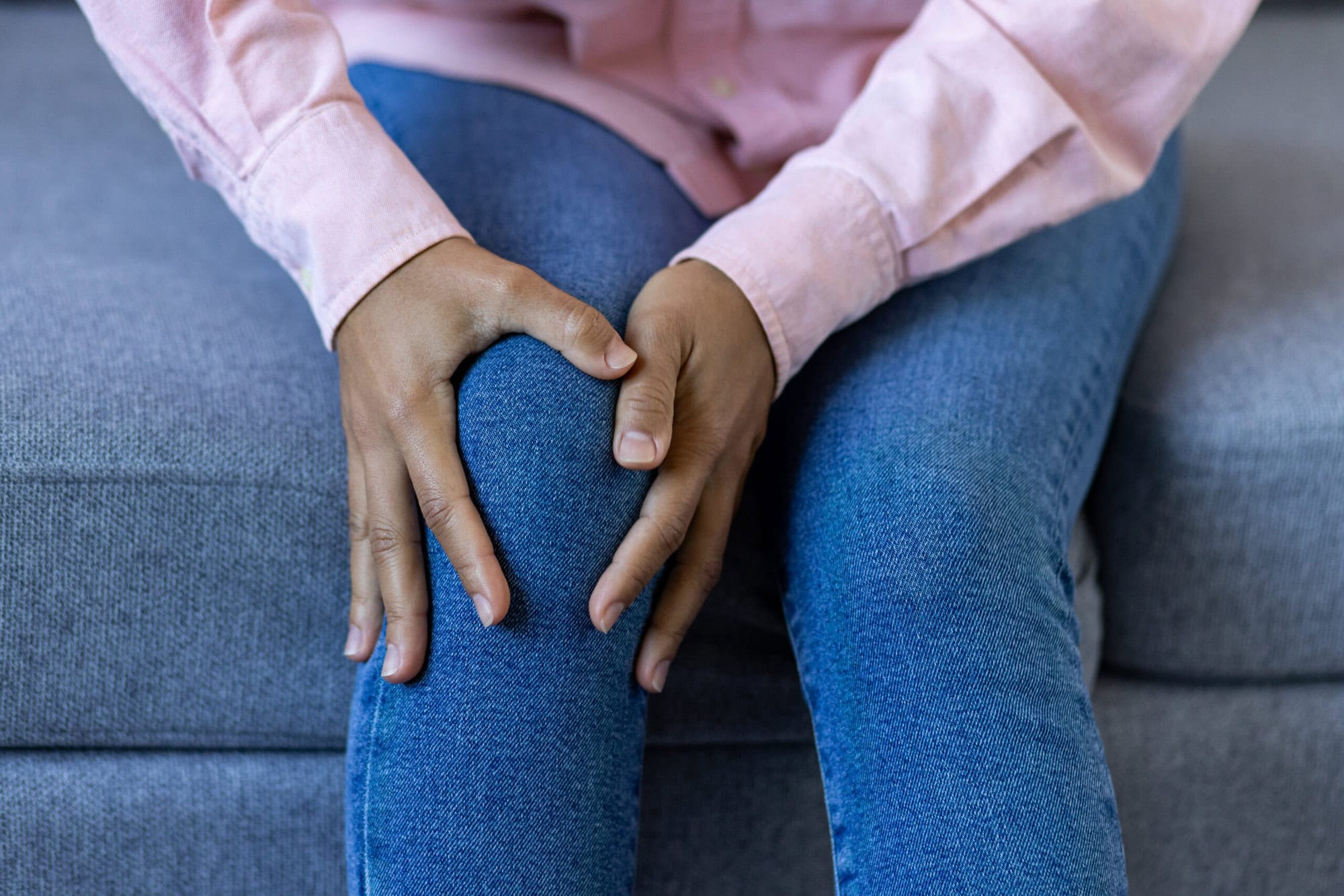Knee pain can seriously stop you in your tracks. But if it isn’t persistent, is it really that serious? Maybe not, but only a healthcare provider can tell for sure. Forever Fit provides physical therapy for patients with a wide variety of short-term and chronic knee conditions. Here, this article discusses some of the possible reasons for a sharp, stabbing pain in the knee that seems to come and go and what you can do about it.
What can cause sharp, intermittent knee pain?
Patients experience joint discomfort for many different reasons. It’s even possible to have knee pain without an obvious injury. How your physical therapist treats this issue depends on the root cause and other correlating factors. Common reasons for sharp, intermittent knee pain include:
-
Torn meniscus
Your meniscus is the cartilage between your shin and thigh bones. For a slight or moderate meniscus tear, the pain could come and go. You may feel it more if you twist or move your knee in certain ways, but it’s possible to continue playing or walking normally with a damaged meniscus. However, it will likely feel more intense if the area becomes swollen and inflamed.
-
Knee ligament tears
If you’ve hit your knee, twisted it awkwardly or pivoted too quickly and forcefully, you might have ruptured a ligament. Ligaments are the bands of connective tissue that link your bones together. The four main knee ligaments include:
- Anterior cruciate ligament (ACL) at the center
- Posterior cruciate ligament (PCL) along the back
- Medial collateral ligament (MCL) on the inside
- Lateral collateral ligament (LCL) on the outside
Typically, ligament tears coincide with a “popping” sound the moment they happen and knee instability. Pain and swelling are also common, but the pain may go away when you rest.
-
Runner’s knee
Runner’s knee is also called patellofemoral pain syndrome. This condition typically develops over time. The pain is often localized to your kneecap, and it might feel like a dull ache. However, you may notice a sharp, stabbing pain while running, jumping, climbing stairs and performing other activities.
-
Hoffa’s syndrome
Hoffa’s syndrome is when the tissue behind your kneecap is inflamed. If it swells, it can get pinched, which means it won’t move like it should when you bend and straighten your knee. This condition usually coincides with other knee injuries and can feel more intense during certain activities (e.g., going up stairs or fully straightening your leg).
-
Knee osteoarthritis
Knee osteoarthritis is a long-term, degenerative condition where the cartilage slowly breaks down in the joint. Arthritis pain is a common symptom, and it can occur when you’re moving, putting pressure on your knee or while at rest.
-
Knee bursitis
The knee contains several bursae (fluid-filled sacs that cushion different areas in the joint). When one becomes inflamed, it’s called bursitis. Some patients feel a sharp pain when they move their knee, press on it or kneel. Discomfort may also continue while at rest.
-
Pinched nerve
Sometimes, knee pain can stem from your spine. This is called referred pain (or pain that originates from a different location than where it’s felt). If a spinal issue pinches a nerve in your lower back, you might feel it in your knee. Pinched nerves can either cause intermittent or continuous pain, depending on the problem.
When to see a physical therapist for intermittent knee pain
Not all knee issues require physical therapy—sometimes all you need is a little rest. However, don’t be afraid to call your healthcare provider anytime you’re concerned. After all, diagnostic testing can bring more than just peace of mind. Here are a few signs that you should see a physical therapist for your knee pain:
- It doesn’t feel better within a few days, especially with rest, icing and elevation
- It interferes with work, sports or everyday life
- It comes with swelling, popping and grinding noises, or knee instability
- It becomes worse or persistent
Patients who’ve recently healed from a known knee injury or surgery should ask a physical therapist to check out their knee sooner rather than later. This type of pain could indicate a related issue.
Call Forever Fit about your knee pain today
Let us help you understand what might be causing your sporadic knee pain. Our compassionate team of licensed physical therapists can create a personalized treatment plan just for you. At Forever Fit, our goal is to help you achieve better health and wellness. We serve patients throughout the central Maryland area, including those in Severna Park, Frederick and Gaithersburg.
Simply fill out an appointment request form or give us a call to schedule a visit.

